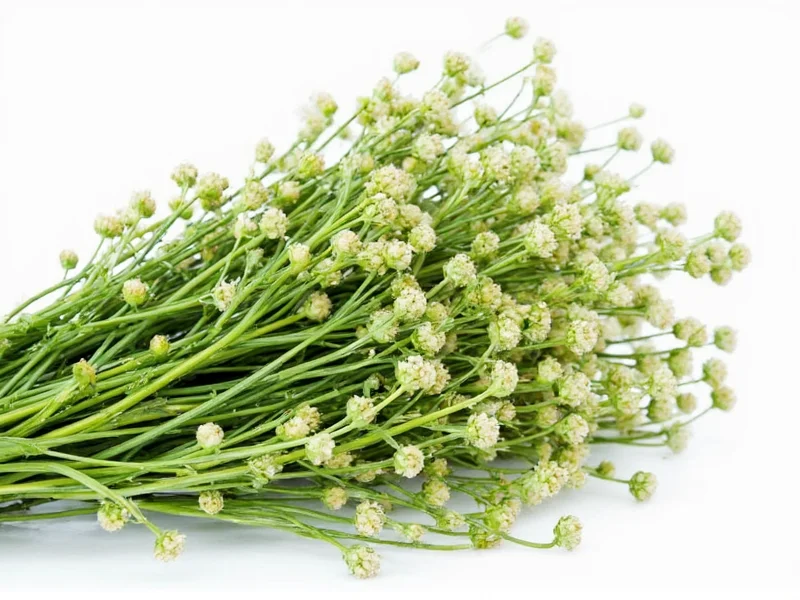Caraway (Carum carvi), a flowering plant in the parsley family, has been used for centuries as both a culinary spice and traditional medicine. With increasing interest in natural ingredients, many consumers rightly question: is caraway non toxic? Understanding the safety profile of this common spice requires examining scientific evidence across different usage scenarios and populations.
Scientific Assessment of Caraway Safety
Multiple regulatory agencies have evaluated caraway's safety profile. The U.S. Food and Drug Administration classifies caraway as Generally Recognized As Safe (GRAS) for food use. The European Food Safety Authority (EFSA) confirms caraway's safety when used as a flavoring agent within established limits. These designations reflect decades of safe culinary use without significant adverse event reports.
Chemical analysis reveals caraway seeds contain 3-7% essential oil, primarily composed of carvone and limonene. Research published in Food and Chemical Toxicology indicates these compounds demonstrate low acute toxicity. A 2021 review of spice safety concluded that caraway consumption at typical culinary levels (0.1-1.0g daily) presents no meaningful health risks for the general population.
Safe Consumption Guidelines
Understanding caraway seed safety profile requires distinguishing between normal culinary use and concentrated applications:
| Usage Scenario | Typical Amount | Safety Assessment |
|---|---|---|
| Culinary seasoning | 0.1-1.0g per serving | No documented toxicity; considered safe |
| Teas/infusions | 1-2g steeped in hot water | Generally safe for short-term use |
| Essential oil | Undiluted application | Potentially toxic; requires professional guidance |
| Supplemental doses | 5g+ daily long-term | Insufficient safety data; consult healthcare provider |
Special Population Considerations
While caraway is non toxic for most adults in food amounts, certain populations require caution:
Pregnancy and Breastfeeding
The American Pregnancy Association notes that culinary use of caraway appears safe during pregnancy, but medicinal quantities lack sufficient research. A 2020 study in Complementary Therapies in Medicine found no adverse effects from moderate consumption, though researchers recommended avoiding concentrated forms.
Pets and Animals
Many pet owners search is caraway poisonous to dogs - the ASPCA lists caraway as non-toxic to both dogs and cats when consumed in small amounts. However, large quantities may cause gastrointestinal upset. The essential oil form presents greater risk and should be kept away from pets.
Medication Interactions
Caraway may interact with certain medications due to its potential effects on liver enzymes. Individuals taking anticoagulants or diabetes medications should consult healthcare providers before consuming caraway in medicinal quantities. No significant interactions occur at typical culinary doses.
When Caraway May Pose Risks
While caraway herb is non-toxic in normal use, potential concerns include:
- Allergic reactions: Rare cases of contact dermatitis and respiratory symptoms have been documented, particularly among spice processors
- Essential oil toxicity: Undiluted caraway oil can cause mucous membrane irritation, nausea, and in extreme cases, neurological symptoms
- Excessive consumption: Very high doses (10g+) may cause heartburn or interact with certain health conditions
The European Medicines Agency notes that caraway essential oil should never be consumed undiluted. For culinary use, no established upper limit exists because typical consumption patterns don't approach potentially harmful levels.
Practical Safety Recommendations
Based on current evidence, these guidelines address common concerns about caraway safety for pregnancy and general use:
- Use caraway seeds as a spice in normal culinary amounts (up to 1g per serving)
- Avoid caraway essential oil internally without professional guidance
- Store essential oils securely away from children and pets
- Discontinue use if any allergic reaction occurs
- Consult healthcare providers before using caraway medicinally if pregnant, nursing, or managing chronic conditions
When evaluating how much caraway is toxic, research suggests acute toxicity would require consuming amounts far beyond typical culinary use - likely exceeding 50g at once for an adult, which is practically impossible through normal food preparation.
Conclusion
Caraway's safety profile is well-established for culinary use. The scientific consensus confirms that caraway is non toxic when used as a spice in normal food preparation. While concentrated forms and excessive consumption warrant caution, everyday use in cooking and baking presents no meaningful toxicity risk for humans or household pets. As with any botanical ingredient, understanding appropriate usage levels ensures safe enjoyment of caraway's distinctive flavor and potential health benefits.
Is caraway safe for human consumption?
Yes, caraway is safe for human consumption in typical culinary amounts (up to 1g per serving). Regulatory agencies worldwide recognize caraway as generally safe for food use. No significant toxicity has been documented from normal dietary consumption.
Can caraway be toxic to dogs or cats?
Caraway seeds are non-toxic to dogs and cats in small amounts that might occur if a pet samples food seasoned with caraway. However, large quantities could cause gastrointestinal upset. Caraway essential oil poses greater risk and should be kept away from pets.
Is caraway essential oil toxic?
Caraway essential oil can be toxic if consumed undiluted or in excessive amounts. While the seeds are safe in culinary use, the concentrated oil contains higher levels of active compounds that may cause mucous membrane irritation, nausea, or neurological symptoms at high doses. Always dilute essential oils properly and consult professionals before internal use.
How much caraway is considered safe during pregnancy?
Culinary amounts of caraway (up to 1g daily) are generally considered safe during pregnancy. However, medicinal quantities or caraway essential oil should be avoided without consulting a healthcare provider, as research on higher doses during pregnancy remains limited.
Are there any documented cases of caraway toxicity?
Documented cases of caraway toxicity are extremely rare and typically involve either excessive consumption far beyond culinary levels (50g+) or improper use of concentrated essential oil. No fatalities or serious adverse events have been reported from normal food use of caraway seeds.











 浙公网安备
33010002000092号
浙公网安备
33010002000092号 浙B2-20120091-4
浙B2-20120091-4